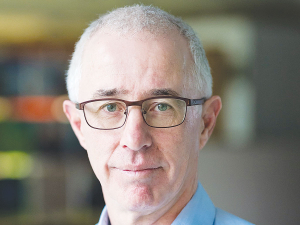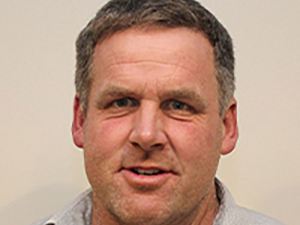OPINION: DairyNZ believes that it's time to join the latest agricultural revolution.
The history of agriculture is a story of innovation and revolution. Since our Neolithic ancestors shifted from hunting and gathering to shepherding and cropping 12,000 years ago farmers all over the world have harnessed new ideas to transform food production.
We can see fascinating examples from the Islamic Empire in medieval times. Britain in the 17th-19th centuries, the Pacific and into Aotearoa during Polynesian settlement and the Green Revolution of the 20th Century. Each revolution has had flow-on effects to population growth and society.
Right now we are in another agricultural revolution with two themes. The first is social - a drive for food security, with a broad concept of sustainable food production. The second is technological where science is generating new opportunities from gene technology, automation and AI and the microbiome.
In New Zealand these two themes are coming together in innovations that aim to deliver food production with a lower environmental footprint and higher productivity.
Modern gene technology is a central part of this revolution. By 2040, Australia's national science agency CSIRO projects a $19.2 billion benefit and 31,200 new jobs from gene technology in the food and agriculture sectors. Right now, AgResearch have new plants in glasshouses that should decrease methane emissions, reduce N loss to waterways and improve animal health. These plants are gene edited or genetically modified and have been developed over 20 years of research. They have been tested overseas and now need to see the light of day in New Zealand to test their true merits. This is no longer a theoretical discussion; we now face a real choice.
My view is it is time for change. Dairy farmers are looking for solutions to the challenges that the public and our customers have laid down. We want to explore all promising avenues that could help us deliver better farming.
The science of gene technologies has moved on, and we support the Government's recent moves to update the rules. But there are three important considerations as we see it.
We believe a regulated approach is needed that considers the wide range of view, opportunities and risks. Decision making needs to recognise mātauranga Māori to provide enduring settings. We're committed to working to inform the policy within the dairy farming context.
We must consider carefully the views of our customers around new gene technology.
And if we proceed there must be a way for all farmers to choose. We have been talking with dairy farmers over the past few months, and respecting individuals' choice is a clear theme that emerged. How do we have a GM plant such as pine tree or a grass in the landscape in a way that also allows for other growers and producers of agricultural products to maintain the status quo?
How do farm systems thrive as neighbours if these changes are made? We have the opportunity here to learn from the world. In Australia and the US, organic farmers and GM croppers work in the same communities.
Gene technology has applications beyond agriculture including medicine and pest control - helping our native birds enjoy a predator free lifestyle, reducing the risk of wilding pines in tussock grasslands and helping solve the wasp problem in Abel Tasman National Park.
This revolution doesn't belong to agriculture, but it's an agricultural revolution nontheless.
We need to begin now to deliver the tools to meet the challenges that will determine our future.
Bruce Thorrold is DairyNZ chief science advisor.


















